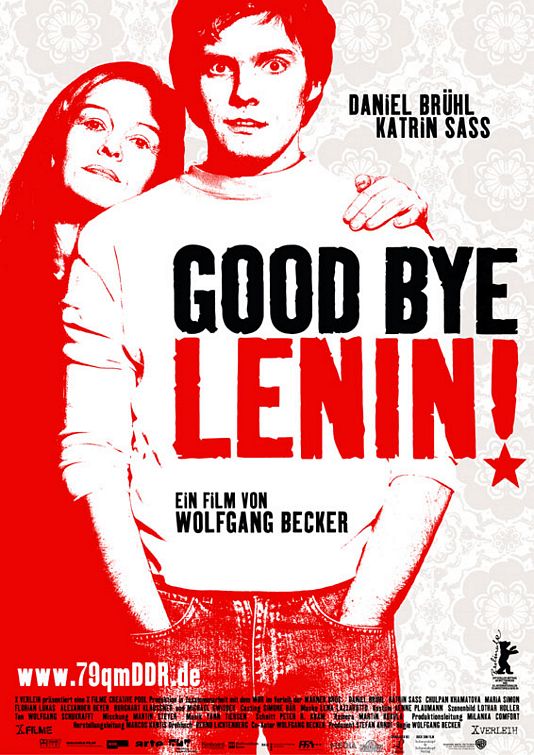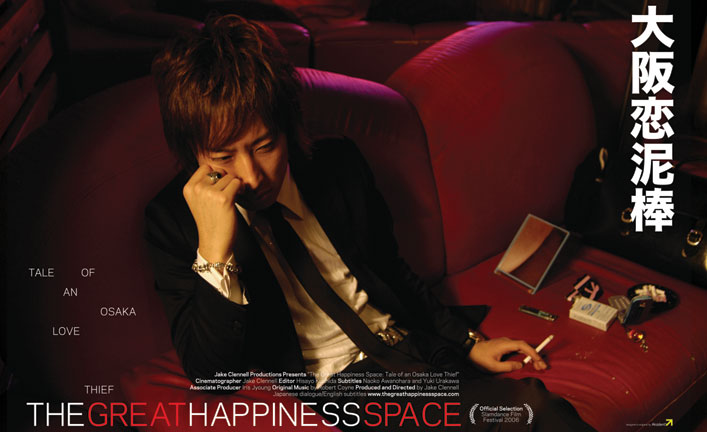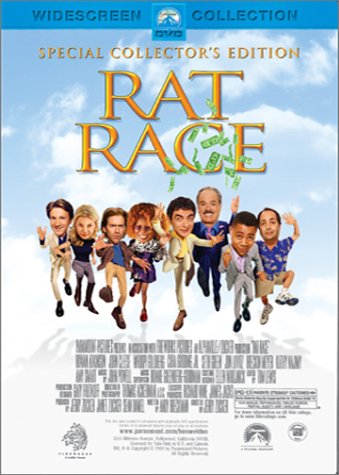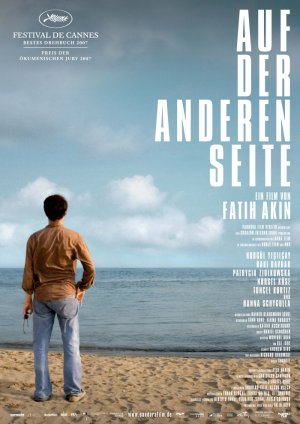
Goodbye Lenin: a masterpiece of a familial history against the backdrop of the collapse of the Berlin Wall in 1989. The core message, as I interpret it, is that each individual try their best to adapt to the colossal social change that results from the uneasy interaction of the discrepant political ideologies. Alex made tremendous efforts to create fictional representations of the capitalized East Germany so as not to upset his socialist-bent mother who was in coma during the fall of the Berlin Wall. Some of the fabricated news he produced with his friends are simply hilarious!
Yet the film is also full of meticulous symbolism and metaphors to contrast the deceptive exposures and uncomfortable experiences of people trying to make sense of the two political systems.Wolfgang Becker is very skillful in using different representations of signs at different critical moments to deliver the changing conceptions and understandings of these signs. One good example to illustrate this point is the two-timed blindfolding of Alex’s mother. She was blindfolded at the beginning of the film after she was discharged from the hospital. She lied to her children about their father’s departure and was “married to the socialist fatherland” after that. She was blindfolded again toward the end of the film on the drive way to the garden house. This time she confessed to her children about the truth of their father’s escape, which unequivocally debunked the cruel socialist regime. She “lied” again by pretending to believe in the fabricated news Alex prepared for her the last time even though she was already briefed by Alex’s girlfriend about the truth. The message the director wants to get across through showing the different reactions of Alex’s mother towards the blindfolding plot––a sign symbolizing the disguise of truth–––is the continuous construction of deception for different purposes. In a way, her mother came clean about her propagandized feeling about idealized socialist goods because her husband was forced to leave the country for his non-affiliation to the party. However, the deception continues after her confession for protecting her son’s dignity and feeling. Alex was convicted that his mother “never learned the truth” in her coffin, thanks to his hardwork. It was Alex who was “blindfolded” unconsciously in his flawless facade and filial piety. At both occasions, his mother used deception to achieve what she thought was good for her children, to their oblivion. The repetition of deception also implies that there are only selective interpretation of history. Nobody in this film is crystal clear about the holistic picture of the social history. Everyone knows a little and endeavors to fit the bits and pieces of the history that they grasped to fit in their existing framework to make life bearable for each individual.
Here are some well-written quotes from fellow reviewers on imdb, way better than I could ever have put it:
"Against this tapestry of myth we watch contemporary politics play out, trying desperately to spin events into frameworks that reinforce our desires for justice and virtue."
"We are all Alex, trying to reconstruct a new view of history that makes us more proud of where we come from. We invent and reinvent history to suit our needs and like Alex, do so in the name of providing a safe environment (or better way of life) for others."



